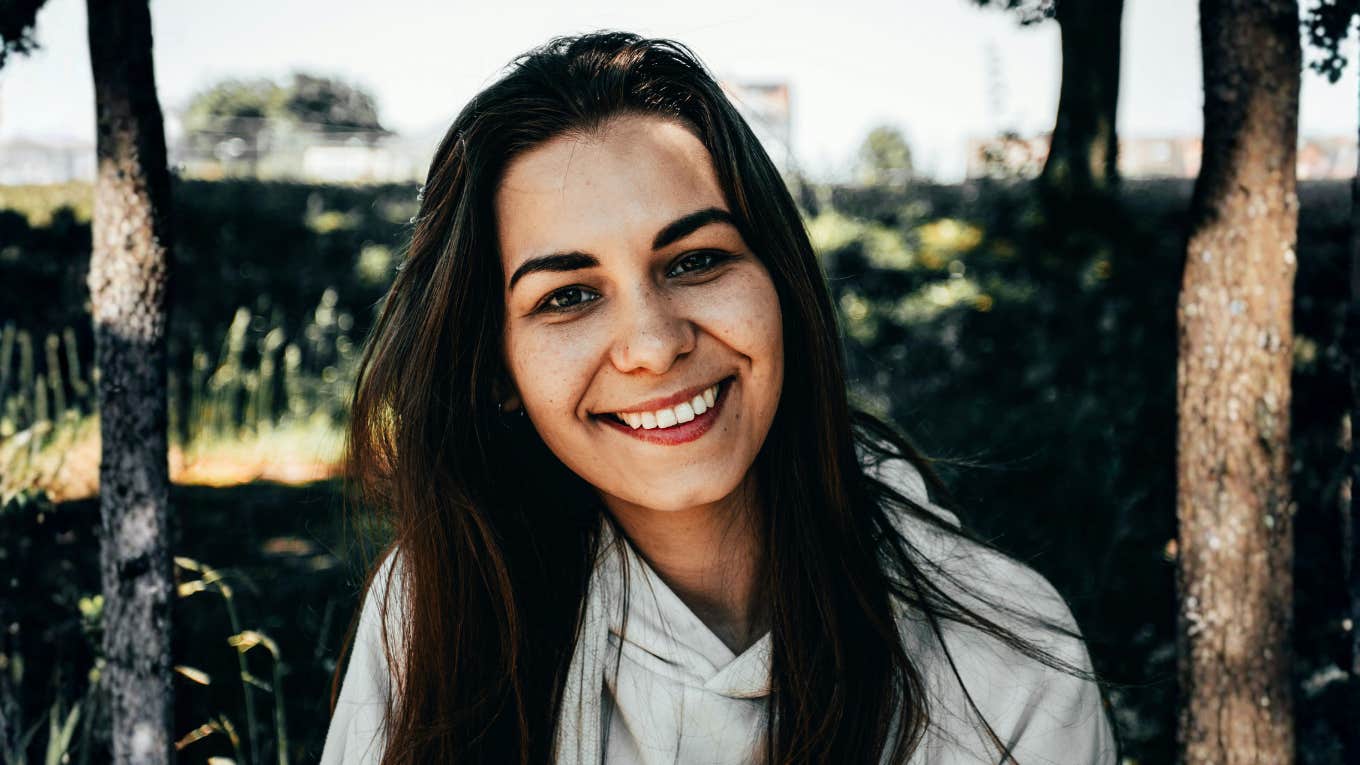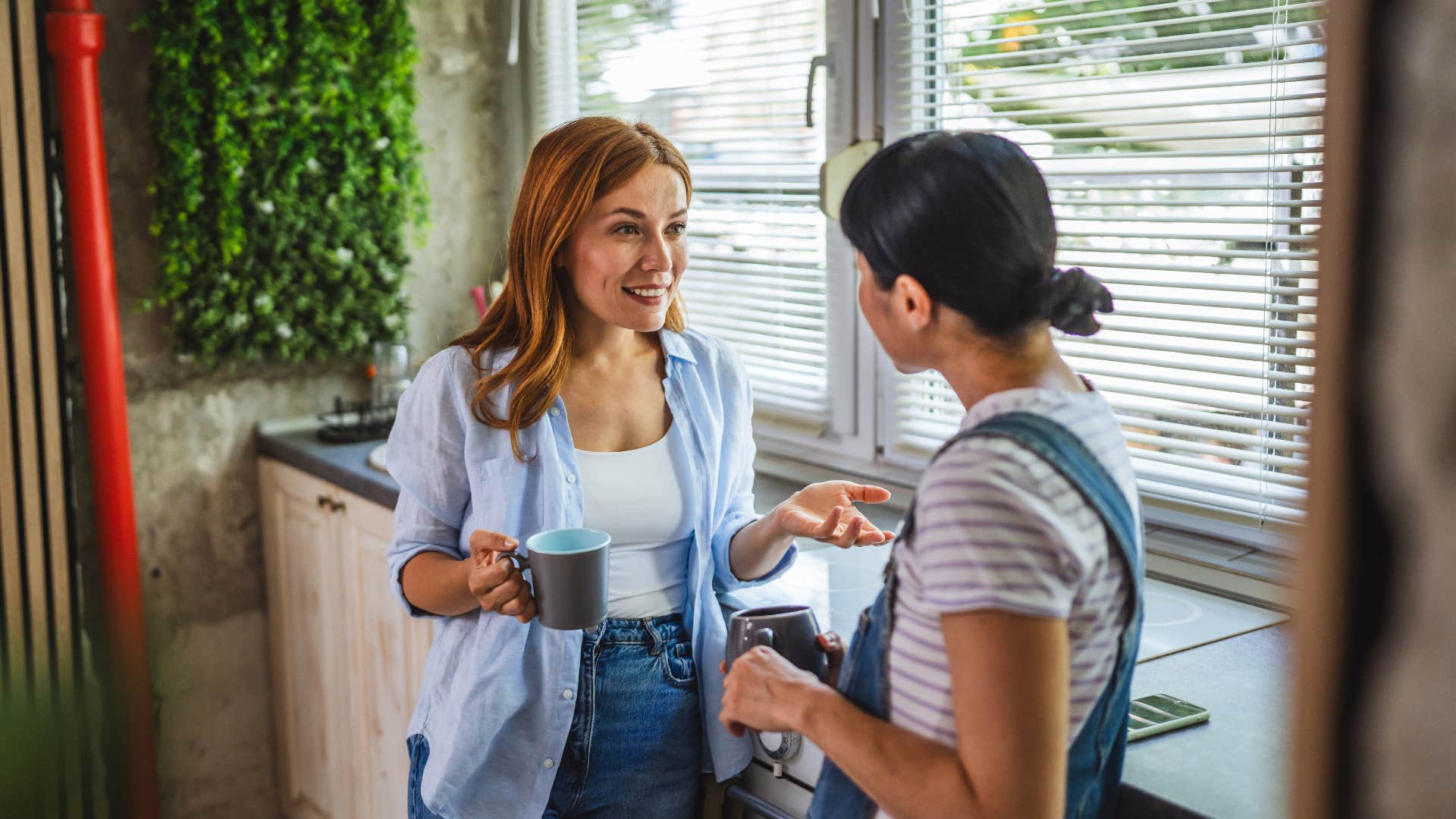The Art Of Holding Space: 8 Habits Of People Who Naturally Make You Feel Safe
People who hold space walk next to someone on their journey with no judgment, only love.
 Cedé Joey | Pexels
Cedé Joey | Pexels What does it mean to hold space for someone else? It means that we're willing to walk alongside another person in whatever journey they're on without judging them, making them feel inadequate, trying to fix them, or trying to impact the outcome. When we hold space for other people, we open our hearts, offer unconditional support, and let go of judgment and control.
Even the strongest leaders, coaches, and nurses need to know that there are some people with whom they can be vulnerable and weak without fear of being judged. It's not always easy, but I keep trying because I know that it's important. At the same time, there are people in my life that I trust to hold space for me. To truly support people in their own growth, transformation, or grief, we can't do it by taking their power away, shaming them, or overwhelming them.
We have to be prepared to step to the side so they can make their own choices, offer them unconditional love and support, give gentle guidance, and make them feel safe. Holding space isn't exclusive to facilitators or coaches. It's something that all of us can do for each other — for our partners, children, friends, neighbors, and even strangers who strike up conversations as we're riding the bus to work.
Here are 8 habits of people who naturally make you feel safe:
1. They give people permission to trust their own intuition and wisdom
 Miljan Zivkovic / Shutterstock
Miljan Zivkovic / Shutterstock
When my mom was dying, my siblings and I gathered to be with her in her final days. None of us knew anything about supporting someone in her transition out of this life into the next, but we were pretty sure we wanted to keep her at home, so we did.
While we supported Mom, we were, in turn, supported by a gifted palliative care nurse, Ann, who came every few days to care for Mom and to talk to us about what we could expect in the coming days. She taught us how to inject Mom with morphine when she became restless, she offered to do the difficult tasks (like bathing Mom), and she gave us only as much information as we needed about what to do with Mom's body after her spirit had passed.
The work that Ann did can be defined by a term that's become common in some of the circles in which I work: She was "holding space" for us. When we were supporting Mom in her final days, we had no experience to rely on. And yet, intuitively, we knew what was needed.
We knew how to carry her shrinking body to the washroom, we knew how to sit and sing hymns to her, and we knew how to love her. We even knew when it was time to inject the medication that would help ease her pain.
In a very gentle way, Ann let us know that we didn't need to do things according to some arbitrary healthcare protocol. We simply needed to trust our intuition and accumulated wisdom from the many years we'd loved Mom.
2. They give people only as much information as they can handle
 Gorgev / Shutterstock
Gorgev / Shutterstock
Ann gave us some simple instructions and left us with a few handouts, but didn't overwhelm us with far more than we could process in our tender time of grief. Too much information would have left us feeling incompetent and unworthy.
"Take your time," she said. "You don't need to call the funeral home until you're ready. Gather the friends and family who will want to say their final farewells. Sit with your mom as long as you need to. When you're ready, call, and they will come to pick her up."
Ann gave us an incredible gift in those final days. Though it was an excruciating week, we knew that we were being held by someone who was only a phone call away.
Research suggests that the way information is shared is as important as the information itself. By carefully managing the flow of information, a person can foster an environment of security in both one-on-one relationships and more formal settings.
3. They don't take other people's power away
 Josep Suria / Shutterstock
Josep Suria / Shutterstock
When we take decision-making power out of people's hands, we leave them feeling useless and incompetent. There may be some times when we need to step in and make hard decisions for other people (like when they're dealing with a dependency and an intervention feels like the only thing that will save them), but in almost every other case, people need the autonomy to make their own choices.
Ann knew that we needed to feel empowered in making decisions on our mom's behalf, so she offered support but never tried to direct or control us.
4. They keep their own ego out of it
 PeopleImages / Shutterstock
PeopleImages / Shutterstock
We all get caught in that trap now and then, when we begin to believe that someone else's success is dependent on our intervention, or when we think that their failure reflects poorly on us, or when we're convinced that whatever emotions they choose to unload on us are about us instead of them.
It's a trap I've occasionally found myself slipping into when I teach. I can become more concerned about my own success (Do the students like me? Do their marks reflect on my ability to teach?) than about the success of my students.
But that doesn't serve anyone — not even me. To truly support their growth, I need to keep my ego out of it and create the space where they have the opportunity to grow and learn.
Saying less and listening more replaces the ego's desire to assert its own ideas with empathy and a genuine interest in what others are thinking and feeling. By embodying non-defensiveness and compassion, research has shown that it creates an environment where others can be their authentic selves.
5. They make others feel safe enough to fail
 GaudiLab / Shutterstock
GaudiLab / Shutterstock
When people are learning, growing, or going through grief or transition, they're bound to make some mistakes along the way. When we, as their space holders, withhold judgment and shame, we offer them the opportunity to reach inside themselves to find the courage to take risks and the resilience to keep going even when they fail.
When we let them know that failure is simply a part of the journey and not the end of the world, they'll spend less time beating themselves up for it and more time learning from their mistakes.
6. They give guidance, and help with humility and thoughtfulness
 GaudiLab / Shutterstock
GaudiLab / Shutterstock
A wise space holder knows when to withhold guidance (when it makes a person feel foolish and inadequate) and when to offer it gently (when a person asks for it or is too lost to know what to ask for). Though Ann didn't take our power or autonomy away, she did offer to come and give Mom baths and do some of the more challenging parts of caregiving.
This was a relief to us, as we had no practice at it and didn't want to place Mom in a position that might make her feel shame. This is a careful dance that we all must do when we hold space for other people. Recognizing the areas in which they feel most vulnerable and incapable, and offering the right kind of help without shaming them, takes practice and humility.
Thoughtful guidance helps others articulate their thoughts clearly and set realistic goals, which builds their self-assurance and confidence. Research shows that this fosters empowerment rather than dependence.
7. They create a container for complex emotions
 PeopleImages / Shutterstock
PeopleImages / Shutterstock
When people feel that they're held in a deeper way than they're used to, they feel safe enough to allow complex emotions to surface that might normally remain hidden. Someone who's practiced at holding space knows that this can happen and will be prepared to hold it in a gentle, supportive, and non-judgmental way.
We cannot do this if we're overly emotional ourselves, if we haven't done the hard work of looking into our own shadow, or if we don't trust the people we are holding space for.
In Ann's case, she did this by showing up with tenderness, compassion, and confidence. If she had shown up in a way that didn't assure us that she could handle difficult situations or that she was afraid of death, we wouldn't have been able to trust her as we did.
One study suggested that the container exercise is a form of emotional regulation that gives people a practical tool to manage and control overwhelming feelings, reducing anxiety and stress. The individual can choose to revisit the container later when they feel more equipped to process the emotions.
8. They allow them to make different decisions and have different experiences than they would
 Josep Suria / Shutterstock
Josep Suria / Shutterstock
It's about respecting each person's differences and recognizing that those differences may lead to them making choices that we wouldn't make. Sometimes, for example, they make choices based on cultural norms that we can't understand from within our own experience. When we hold space, we release control and we honor differences.
This showed up in the way that Ann supported us in making decisions about what to do with Mom's body after her spirit was no longer housed there. If there had been some ritual that we felt we needed to conduct before releasing her body, we were free to do that in the privacy of Mom's home.
Heather Plett is the author of the award-winning book The Art of Holding Space: A Practice of Love, Liberation, and Leadership. She is also the co-founder of the Centre for Holding Space.

